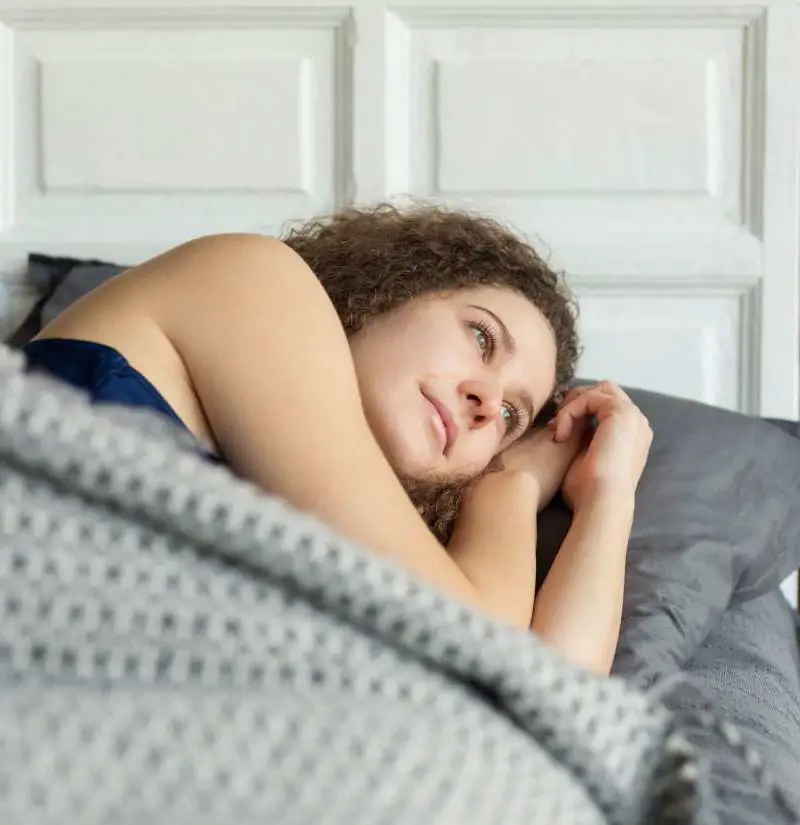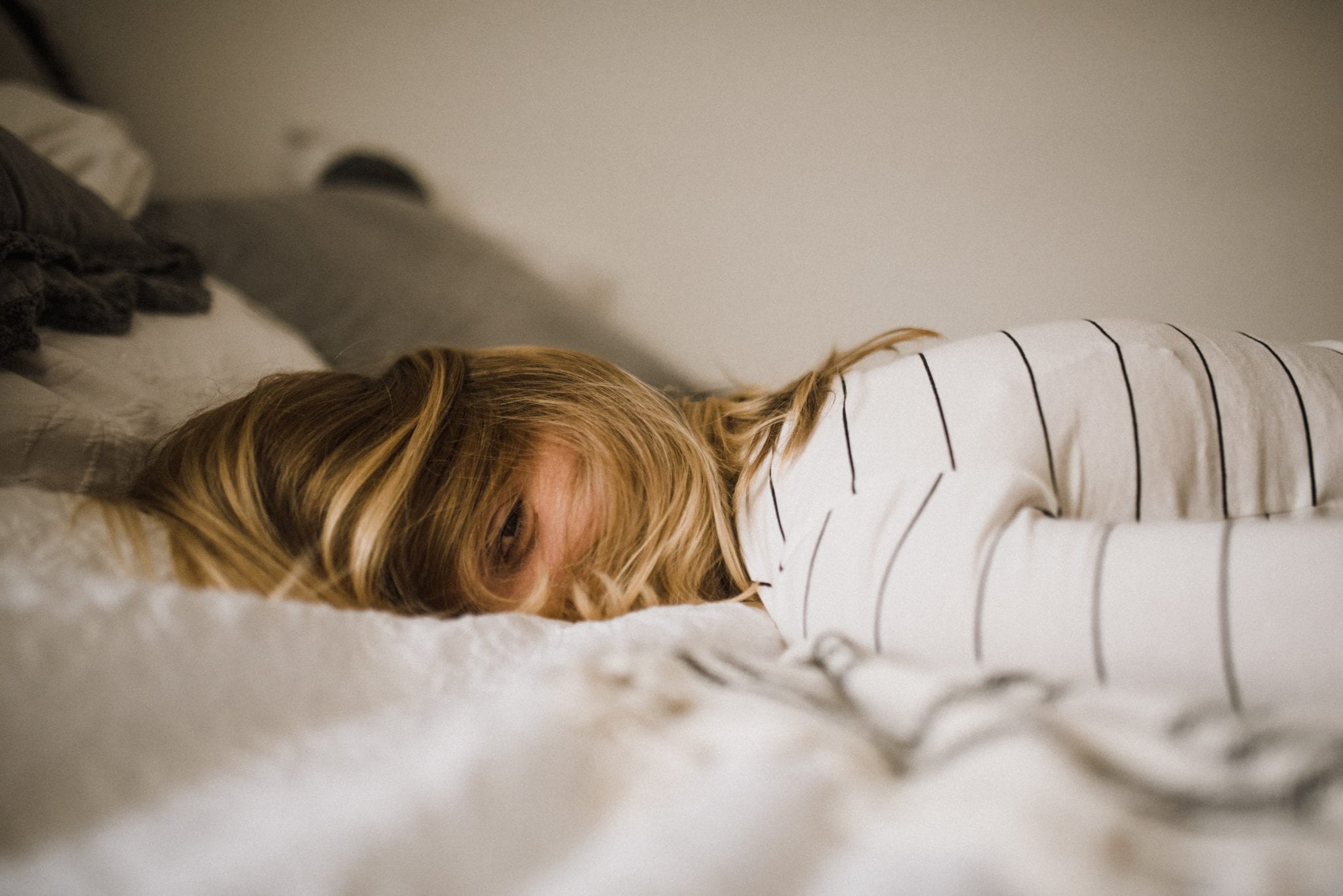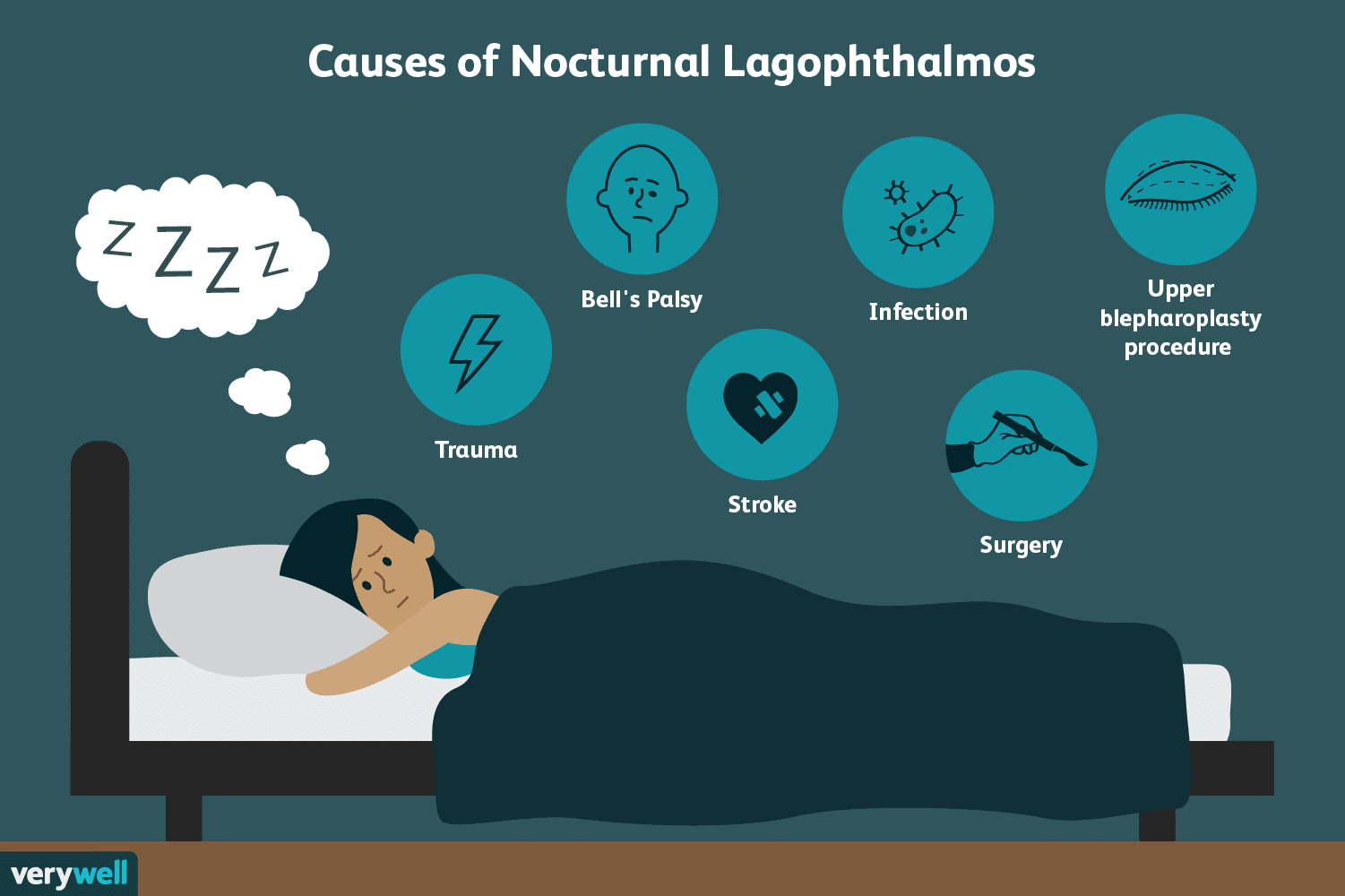Are You Sleeping With Your Eyes Open?
Are you sleeping with your eyes open? If yes, you might feel there is something in your eyes as soon as you wake up. You might joke about it or don’t take it seriously, or consider it a wired habit, but when this condition is left untreated for a prolonged illness, it can be dangerous.
Sleeping with eyes open is referred to medically as nocturnal lagophthalmos. It is generally caused due to problems with muscles or nerves in your face that make it challenging to keep the eyes closed fully.
Most people probably do not even realize if they sleep with their eyes open unless someone mentions it. But, if you are constantly waking up with dry eye signs, such as redness, pain, and blurry vision, it might indicate you sleep with your eyes open. It is always a good idea to go for a checkup.
Symptoms indicating you are sleeping with your eyes open

Everyone is familiar with the fact that humans blink during the day, and when we sleep at night, we close our eyelids for a sound sleep. There is a good reason behind shutting your eyes. Once you shut your eyelids, your eyeball is covered with tear fluid. That is because tears help build a moist environment for eye cells to function correctly. It also helps flush out debris and dust.
Without sufficient lubrication, the eye can get scratched, damaged, and infected. Some symptoms of nocturnal lagophthalmos are associated with drying out of the eye’s exterior portion. Here are some possible signs to help you determine if you are sleeping with your eyes open.
- feeling like dust or other material is rubbing against the eye
- reduced quality sleep
- scratchiness
- light sensitivity
- burning
- irritation
- redness
- blurred vision
Causes of sleeping with your eyes open
Nocturnal lagophthalmos condition is generally associated with difficulty with the nerves or muscles of your face. Anything that leads to weakness, paralysis, or insensibility in a particular muscle, called the orbicularis oculi muscle (the muscle responsible for closing the eyelids), may lead to sleeping with your eyes open. A few examples include:
- neuromuscular disorders
- Moebius syndrome, a unique condition distinguished by cranial nerve palsies
- autoimmune diseases, for example, Guillain-Barré syndrome
- a cyst or a surgery eliminate a tumor close to your facial nerve, like an acoustic neuroma
- trauma or injury
- stroke
- Bell’s Palsy- Bell’s palsy is an event of facial muscle infirmity or paralysis that is not yet explained. It starts abruptly and worsens for 48 hours. This disease results from injury or damage to your facial nerve (the 7th cranial nerve). Discomfort and pain mainly occur on one side of your head or face. Bell’s palsy may hit anyone at any age.
This condition may also be caused as a result of an infection. Some examples include:
- Botulism
- Diphtheria
- Leprosy
- polio
- mumps
- Lyme disease
- chickenpox
Another reason that may lead to sleeping with your eyes open is physical damage to your eyelids. Scarring from any injury or burns, or eyelid surgery can also cause damage to your eyelids and make your eyelids less able to close fully when you sleep, resulting in dryness. Protruding eyes, also known as exophthalmos or bulging due to Grave’s Ophthalmopathy, may also make the eyelids less likely to close. Grave’s Ophthalmopathy is a condition usually seen in someone with overactive thyroid glands.
Sleeping with your eyes open has no obvious or clear-cut cause for a few people with this condition. It might also run in families as a genetic condition. Less frequently, another reason is that very thick lower and upper eyelashes may prevent people from closing their eyes during the night completely.
Visiting a doctor

The doctor will ask specific questions about the medical history. Make sure you mention your doctor about any new injuries, surgeries, allergies, or infections that involve your head, eyes, or face.
At your first appointment, the doctor is likely to ask you some questions, such as:
- Have someone ever mentioned to you that your eyes are partly or entirely open while you are asleep?
- Do you generally use a ceiling fan or another cooling or heating system in your room with air vents at night?
- Are the symptoms more hurtful while you wake up?
- Do the symptoms improve during the day?
- How long have you felt these symptoms?
If the doctor speculates you are sleeping with your eyes open or have nocturnal lagophthalmos, they might ask you to complete a few assignments to examine your eyes while they remain closed.
For example, you might be asked to gently close your eyes and lie down as if you are about to take a small nap. The doctor will witness what happens to the eyelids once a minute or two has reached. They might also look to see if your eyelid twitches or begins to open lightly on its own.
Some other tests that doctors may perform includes:
- Doctors use a fluorescein eye stain test to determine if some signs indicate damage in the eyes.
- A slit lamp exam can be conducted where a bright light and microscope are used to look closely at your eyes.
- The space between the eyelids is measured using a ruler.
- When you block, some force is utilized to do so. This force is measured too to see signs of damage.
Are there complications of sleeping with your eyes open
Extended dehydration o the ey may cause a few severe issues to the eyes, such as:
- corneal ulcer- an exposed sore on the corneal part.
- Exposure keratopathy– It refers to damage to your cornea, the surface layer of the eye.
- Heightened risk of injury and scratches to your look.
- loss of vision
- diseases or infections within the eye
Treatment for sleeping with your eyes open

The doctor may suggest using good moisture goggles at night to help moisturize the eyes while sleeping. You may also try using a humidifier from now on.
Sometimes, the doctors suggest an external eyelid pressure, which is implemented on the outside of the upper eyelids at night to help you keep the eyes closed. A surgical tape may also be recommended after examining your condition by the doctors.
Based on your condition and severity, doctors may provide some medications. If the symptoms worsen due to sleeping with your eyes open, the doctors may suggest surgery to treat this condition.
Let’s see surgery options and what are the medications suggested by the doctors:
Medications
To keep your eyes moisturized and lubricated, the doctor may prescribe certain medications and drops, such as:
- ophthalmic medicines to prevent scratches
- Artificial tears are utilized nearly four times a day to keep the eyes lubricated.
- Eye drops.
Surgery
In severe conditions leading to paralysis, the doctors may recommend a gold surgical implant. Doctors use this implant for the eyelids as it functions similar to an eyelid weight to help close your upper eyelids while you are asleep. This is more of a permanent cure for sleeping with your eyes open.
While performing the short procedure, the doctor makes a small incision outside the eyelid right above the eyelashes. The gold implant is then entered in the small pocket created inside the eyelid and secured in that position using stitches. The cut or incision is then sealed again using stitches, and certain antibiotic ointments are applied to your eyelid to help them heal after the stitches.
Once the surgery is completed, you may experience a few symptoms initially. Some of these symptoms include:
- Bruising
- redness
- discomfort
- swelling
Your eyelids may feel a bit thicker during and after the surgery, but the implant is not generally noticeable. The symptoms given above will also go away with time.
Does sleeping with your eyes open affect sleep quality?
Nocturnal lagophthalmos is usually associated with decreased sleep quality. A person might not sleep as well or as long due to immense pain and discomfort from the eyes regularly drying out throughout the night.
People must make an appointment with a doctor if nocturnal lagophthalmos is speculated. The doctor will then help them obtain appropriate treatment.
The Bottom Line
Sleeping with your eye open is generally not a very serious disorder or condition requiring panic. Still, it can be managed using specific simple solutions, like using lid wights, eye drops, and humidifiers. However, it may be symptoms of another underlying condition that may or may not be severe.
It is also essential to reach out to a good doctor if you have trouble shutting your eyes while you sleep or you sense that the eyes are highly irritated across the day. Before nocturnal lagophthalmos covers in a severe condition, it is best to visit a doctor for proper treatment. Treating the disease in the initial days is always a good idea to skip complications and surgeries.
Even in chronic cases, implant surgery is an effective and safe solution for sleeping your eyes open. Surgery typically carries 90% success rates, and the implants are easily removable when you no longer need them r they create another issue.


[…] an eye test to help find out the possible cause and provide a treatment plan accordingly.Are you sleeping with your eyes open? If yes, here’s all you need to know about its causes and […]